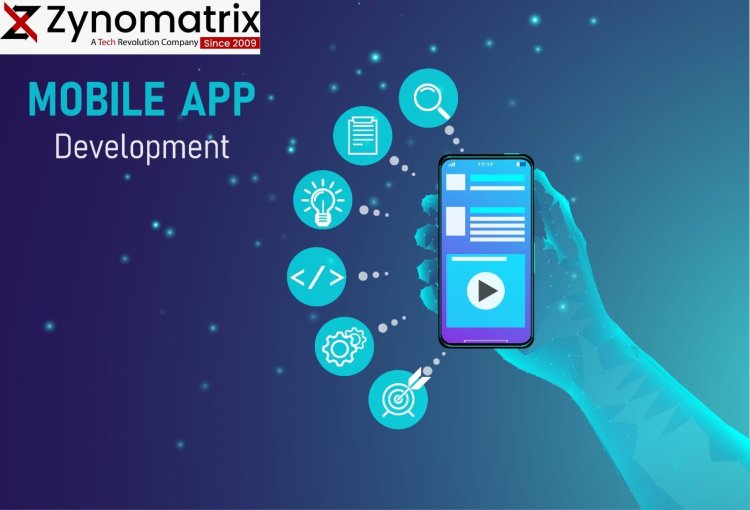Exploring the Latest Mobile App Development Trends.
This blog post explores the latest trends in mobile app development, focusing on advancements and technologies shaping the industry. It covers topics such as 5G connectivity, Internet of Things (IoT) integration, artificial intelligence (AI) and machine learning (ML), augmented reality (AR) and virtual reality (VR), mobile wallets and payment integration, instant apps, app security, and progressive web apps (PWAs). By staying updated with these trends, businesses and developers can create innovative and user-friendly mobile applications that deliver enhanced user experiences and meet evolving customer expectations.

Introduction:
The mobile app development landscape is constantly evolving, driven by technological advancements and changing user expectations. Staying up-to-date with the latest trends is essential for businesses and developers seeking to create innovative, user-friendly, and competitive mobile applications. In this blog post, we will delve into the top mobile app development trends that are shaping the industry in recent times.
5G Connectivity:
With the rollout of 5G networks, mobile app developers can harness the power of faster and more reliable connectivity. This opens up opportunities for creating richer and more immersive user experiences, such as real-time video streaming, augmented reality (AR), and virtual reality (VR) applications. Embracing 5G technology enables developers to deliver faster app performance, seamless data transfer, and enhanced user engagement.
Internet of Things (IoT) Integration:
The IoT has gained significant momentum, connecting various devices and enabling data exchange. Mobile apps can now interact with IoT-enabled devices, allowing users to control and monitor smart appliances, wearables, home automation systems, and more. Integrating IoT capabilities into mobile apps enhances convenience, automation, and personalized experiences for users.
Artificial Intelligence (AI) and Machine Learning (ML):
AI and ML technologies have transformed mobile app development by enabling intelligent features and capabilities. AI-powered chatbots, voice assistants, recommendation engines, and image recognition systems are enhancing user interactions and personalization. ML algorithms analyze user behavior and preferences, providing tailored content and improving app performance over time.
Augmented Reality (AR) and Virtual Reality (VR):
AR and VR technologies continue to revolutionize mobile app experiences. AR enhances the real-world environment by overlaying digital information, while VR creates immersive, computer-generated environments. These technologies find applications in gaming, e-commerce, education, tourism, and more, providing users with interactive and engaging experiences.
Mobile Wallets and Payment Integration:
Mobile payment solutions and digital wallets have gained popularity, transforming the way users make transactions. Developers can integrate secure payment gateways and digital wallet functionalities into their apps, facilitating seamless and convenient in-app purchases. This trend enables businesses to offer frictionless payment experiences, driving customer satisfaction and loyalty.
Instant Apps:
Instant apps allow users to access certain functionalities of an app without the need for installation. Users can experience the app's core features instantly, eliminating the barrier of downloading and installing large applications. This trend provides a seamless user experience and encourages higher app adoption rates.
Enhanced App Security:
As mobile apps handle sensitive user data, app security remains a top priority. Developers are implementing advanced security measures like biometric authentication, data encryption, and secure communication protocols to protect user information. App security audits and regular updates are crucial to staying ahead of evolving security threats.
Progressive Web Apps (PWAs):
PWAs combine the best features of web and mobile apps, offering a seamless user experience across devices. These apps are accessible through web browsers and provide app-like features, offline capabilities, and push notifications. PWAs are cost-effective, easily discoverable, and do not require installation, making them a popular choice for businesses seeking wider reach and engagement.
What's Your Reaction?





















